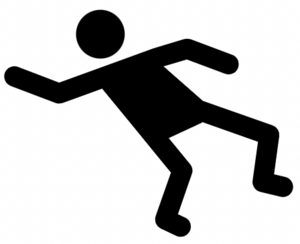Dementia Fall Risk Fundamentals Explained
Dementia Fall Risk Fundamentals Explained
Blog Article
Dementia Fall Risk Things To Know Before You Buy
Table of ContentsDementia Fall Risk for BeginnersSome Known Details About Dementia Fall Risk The Facts About Dementia Fall Risk UncoveredThe Of Dementia Fall RiskNot known Incorrect Statements About Dementia Fall Risk
You might be nervous since you have actually had a fall prior to or because you have actually discovered you're beginning to really feel unsteady on your feet. You could have discovered adjustments to your health and wellness, or just feel like you're decreasing a little. Whatever the reason, it isn't uncommon to become mindful and shed self-confidence, and this can quit you doing the important things you utilized to do and make you really feel a lot more separated.If you've had a fall or you have actually begun to really feel unstable, tell your physician even if you feel great or else. Your medical professional can examine your balance and the way you walk to see if improvements can be made. They might have the ability to refer you for a drops threat assessment or to the drops avoidance service.
This details can be acquired through meetings with the person, their caretakers, and an evaluation of their medical documents. Begin by asking the private concerning their background of falls, including the frequency and situations of any kind of recent drops. Dementia Fall Risk. Inquire concerning any mobility problems they might experience, such as unsteady or problem walking
Conduct an extensive review of the person's medications, paying specific focus to those understood to raise the danger of drops, such as sedatives or medications that reduced blood pressure. Figure out if they are taking multiple medicines or if there have actually been recent changes in their drug regimen. Examine the person's home atmosphere for possible risks that can enhance the risk of falls, such as poor illumination, loose rugs, or absence of grab bars in the shower room.
Dementia Fall Risk - Truths
Guide the individual through the fall risk analysis kind, discussing each concern and tape-recording their feedbacks accurately. Compute the total threat rating based on the feedbacks given in the evaluation type.
This plan may consist of exercise programs to improve strength and equilibrium, drug adjustments, home adjustments, and referrals to various other specialists as required. Regularly keep track of the person's progress and reassess their threat of drops as required. Change the treatment strategy based on adjustments in their health status or home atmosphere. Give continuous education and learning and support to advertise security and decrease the risk of drops in their everyday living tasks.
Several studies have actually revealed that physical treatment can aid to lower the danger of falling in index adults ages 65 and older. In a brand-new study (that considered falls threat in women ages 80 and older), researchers calculated the financial impact of picking physical treatment to stop drops, and they discovered that doing so saves $2,144, including all the concealed prices of your time, discomfort, missed out on life occasions, and the bucks paid for solutions.
9 Simple Techniques For Dementia Fall Risk
Checking your heart price and high blood pressure dimensions at rest and while you turn (from resting or lying to standing). A basic test of your reasoning (cognitive) abilities. Analyzing your balance, toughness, and strolling ability. A simple vision test. Assessing your feet and shoes. A home safety and security analysis. Based upon the evaluation results, your physical therapist will develop a plan that is tailored to your details demands.
Older adults that have difficulty walking and talking at the exact same time are at a greater threat of falling. Dementia Fall Risk. To aid enhance your safety and security throughout day-to-day tasks, your physical specialist may design a training program that will certainly test you to keep standing and walking while you do another task. Examples consist of walking or standing while counting backwards, having a discussion, or bring a bag of groceries
Set objectives for raising their physical task. Work out more to increase their toughness and balance. These programs frequently are led by volunteer trains.
Rumored Buzz on Dementia Fall Risk

Measles, or rubeola, is an extremely infectious, intense viral transmittable disease triggered by the measles infection. Some individuals consider measles as just a rash and fever that cleans up in a couple of days; nonetheless, measles can trigger serious health and wellness complications, especially in youngsters more youthful than 5-years-old. The most effective protection against measles is the measles, mumps, and rubella (MMR) vaccine.
Loss are a common root cause of injury amongst older grownups. According to the CDC, in one year alone, fall-related injuries added to over $50 billion in clinical costs (Dementia Fall Risk). In hospital setups, older adults are at especially high risk of drops because their minimized wheelchair from being constrained to a space or bed.
Dementia Fall Risk Things To Know Before You Get This

She has a clinical history of seizure problem and hypertension. She is getting an IV mixture and taking Gabapentin and Lasix. She has no history of drops, her stride is consistent, and she invalidates without problems. The previous nurse states that she requires aid to the bathroom when she requires to go.
Instances of common autumn interventions/measures consist of: Making sure a client's important items are accessible. Placing the individual's bed rails up with the alarm on. Assisting a person while they're rising from bed. Past understanding just how to make use of the Johns Hopkins Loss Danger Evaluation Tool, it's essential that facilities include its usage into a more detailed loss avoidance plan.
Report this page